Tarotplane interview
PJ Dorsey works and releases music under moniker of Tarotplane. His concept is to use the old-school techniques to forge a new-school kosmiche sound.
Tarotplane brings forth works that live and breathe in waves of shimmering timbre. His latest release The Feedback Sutras has been recently released by VG+ Records from Baltimore, Maryland.
“New School Kosmiche”
Would you like to talk a bit about your background? What are some bands/musicians that have a big influence on you?
PJ Dorsey: I am from and still live in Baltimore, MD USA. I was born in the late sixties and was raised in a somewhat rural area. I was very interested in music right away. When I was six, I saved up my allowance and went to a local record shop with my Dad and purchased my first album which was the Beatles Magical Mystery Tour. I am assuming it was because of the cover that I made my selection. Always wondered what would have happened if I had of picked Sgt. Pepper instead. I had a school friend who had an older brother that opened my eyes to all kinds of music that was popular with the early 70s teenage rock fan (Led Zep, Grand Funk, Black Sabbath, Jimi Hendrix and for me most importantly, Pink Floyd). When I was 10 years old, I bought a book from Barry Miles called ‘Pink Floyd – The Visual Documentary’. I suppose this book changed my trajectory. I became obsessed with the early Pink Floyd and Syd Barrett in particular. Also became fixated with the British counterculture of that time and I still am. That book was significant because it discussed the culture around the band at that time. I looked into all the other groups that were on the same scene like The Soft Machine, Arthur Brown, & Tomorrow. One other weird thing that happened is that a local record store had the bright idea to rent vinyl LPs. You could go in and pick whatever you wanted, and I think it was just like early video stores where you had a deposit and had to bring it back in 2 days. In the States this was a bold move and it was declared illegal not long after (it may have even been illegal at the time), but they had a huge selection and a lot of bootlegs, so I took chances on anything that looked interesting. Usually the cover art was the deciding factor. This was hugely important because I didn’t have to use FM American radio as my guide to what I should listen to. I was listening to Post Punk, Psychedelia, New Wave, all sorts and it really broadened my horizons at a great time in my life.
“I was kind of a weird kid with bizarre interests”
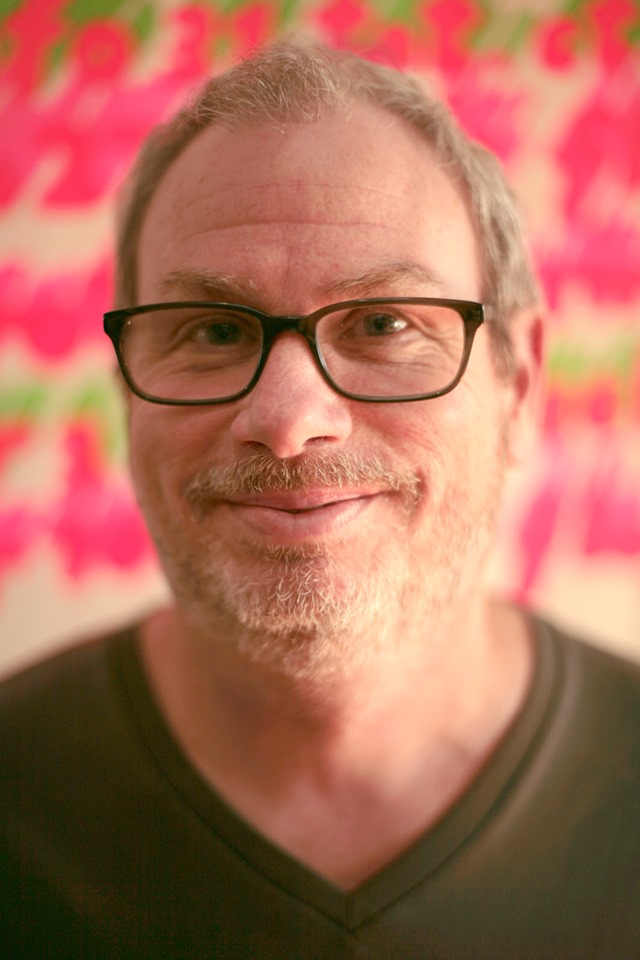
When did you decide that you wanted to start writing and performing your own music? What brought that about for you?
I got a guitar early on. A Les Paul copy when I was maybe 10 years old. I grew up very insular. I was kind of a weird kid with bizarre interests not shared by my schoolmates. I played soccer and I was good at it, but at that time, it was still an odd game in the States, so I was really alone with my interests. I always found the guitar difficult. I didn’t have a guitar teacher and for some reason that I still can’t fathom, I thought learning other people’s songs was cheating. I always tried to make the sounds I was hearing in my head and it was exciting but also frustrating because I lacked the skills. Early on I went towards effects. I knew the building block of the Syd Barrett/Floyd sound was the Binson so I looked into getting one for myself. Even now I almost always have echo on every track I do. I really should stop….Anyhow, not having friends to play with (I have never been in a band) and setting a bizarre bar for myself, I gave up playing music completely for almost 10 years in the late 90s mid 2000s. Not sure what started me back up, but I decided to start playing again and learn a bit more. Youtube helped me a lot because I didn’t have to worry about asking questions to a guitar teacher. I could just rewind and start over. I had a lot of fear about not understanding and it really held me back. I’m pretty much self taught and I play mostly by ear. I did however decide to face my fears and got a real guitar teacher for about 6 months that would help me tie up some of the loose ends I had from learning by video. That turned out to be a huge deal because he made me realize that learning other people’s songs and riffs is an essential building block. Once I learned the riffs in a lot of blues and rock songs, I put that together with the weird style I had already been honing for years and here I am.
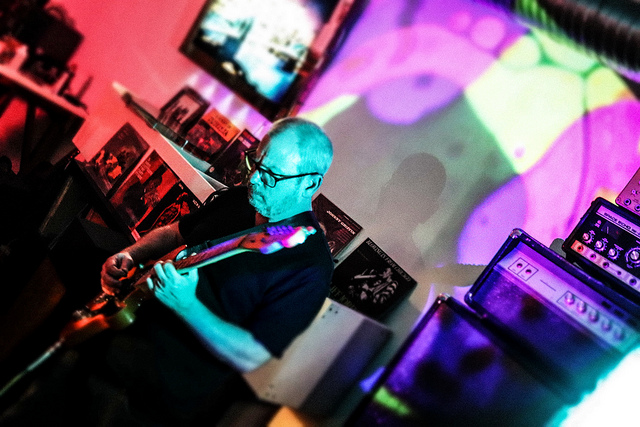
How do you usually approach music making?
I have a long commute to work so I tend to work on a laptop a lot. Have for many years. At the beginning of music making, I just played the guitar either unaccompanied or I learned how to make loops and I played over them. I recorded it all with a handheld recorder. I took that stuff and kind of collaged different pieces together without multitracking at all. This approach is still the main way I work. I don’t tend to go to the basement studio and make tracks. I’m usually playing little bits and pieces or I have a long session of me playing in a particular key. I take that stuff, cut it up and collage it with other pieces that feel similar or I then go and build on that snippet. At the moment I am doing a lot more multitracking than I had previously.
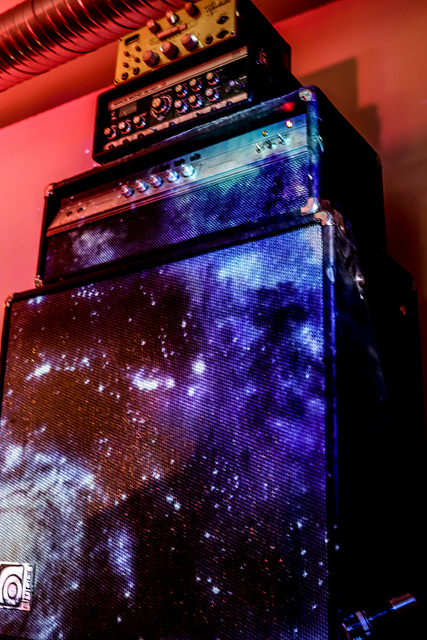
You have a brand new album coming out. The Feedback Sutras will be released via VG+ Records from Baltimore, Maryland.
Yes! It is a new label started by a longtime friend Lee Gardner. It’s my first full length album in a while and I’m really pleased with it.
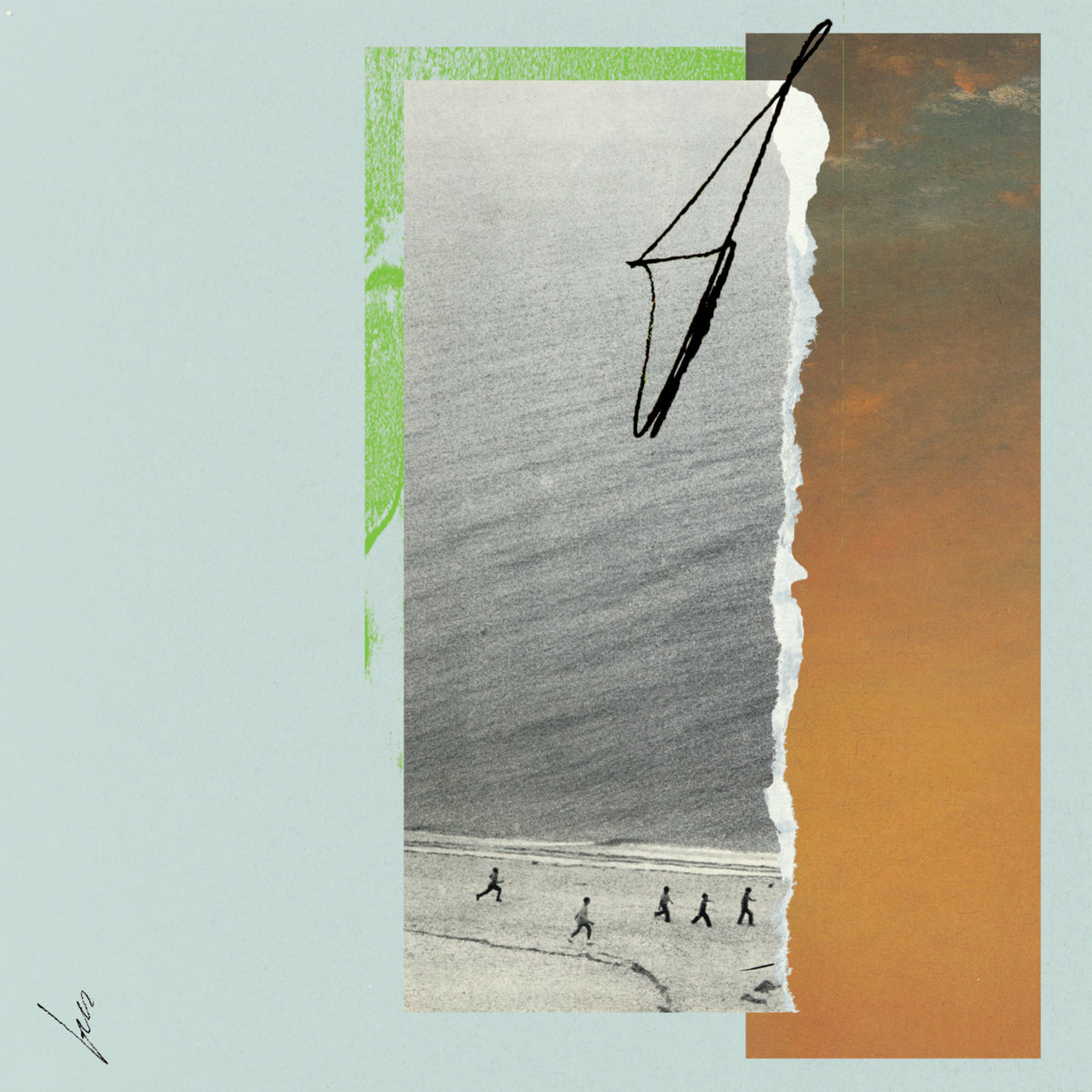
Can you tell me, in your own words, what am I listening to when I listen to The Feedback Sutras?
Well Lee came to me with the idea of making an album and I presented him with some tracks. They tended to be shorter and more varied. He came back to me with the idea of doing 2 longer, more exploratory tracks. I have a really hard time doing things in a long form as I like to mix it up a lot so this was my attempt to do something that would be a side length piece that held together over the duration. I tend to jump around a lot, so this is pretty unusual for me.
Can you share some further details how your latest album was recorded?
When I was making this record, I just had become acquainted with the music of Belgian guitarist Daniel Malempre (M.A.L). I heard his record on Sub-Rosa called My Sixteen Little Planets and that was done in the mid 70’s and had never been released before. I found it fascinating because he was getting a guitar echo sound that was distinctive to my ears and I really wanted to find out more. I asked my friend Ziggy who also lives in Belgium and has a record label as well. He actually knew Daniel and he gave me his email address. I got in touch and he told me in detail how he managed this technique. He used a reel to reel tape deck that had an interesting sound on sound recording feature. I knew from my research that both Achim Reichel and Manuel Göttsching used a reel to reel to achieve echo, but this was a bit different. I went out and scored a Sony TC-630D as Daniel had used and I found a mint condition unit for $100.00 USD. I made Feedback Sutras with this machine using some of the similar techniques. The A side is my attempt at a side long 70s style Kosmiche workout. No amps at all, just guitar, tapedeck, loop pedal and synth. Made in the old fashioned 70s way (in other words, in my basement while stoned with a bunch of analog gear). The B side is my attempt at Frippertronics mixed with a good dose of Heldon thrown in. I used the reel to reel a bit like Fripp did but with a little of my own spin. I wanted to get the vibe of (No Pussyfooting) and that was my goal for that side. I find it impossible to emulate his tone, so I just winged it and I am really pleased with it. Both sides have a usual stereo effect that is a byproduct of using that Sony deck.
“Wide screen psychedelia”
How would you describe your sound?
A friend of mine just called it “New School Kosmiche” and I suppose that’s pretty close. When I’m in P.R. mode, I generously think of it as a “wide screen psychedelia”. I try to make very lush, very composed, vaguely guitar-oriented psych that owes a lot to modern ambient music. I try to mix the elements I value and revere in older 70’s head records and mix it with modern techniques and influences. It’s difficult because my natural sound is often too ambient for a traditional psych crowd and sometimes too guitar heavy for a lot of contemporary listeners that have given up on traditional rock music modes. I try to find a line that balances the two tastes and I hope that push/pull is what makes my music distinctive
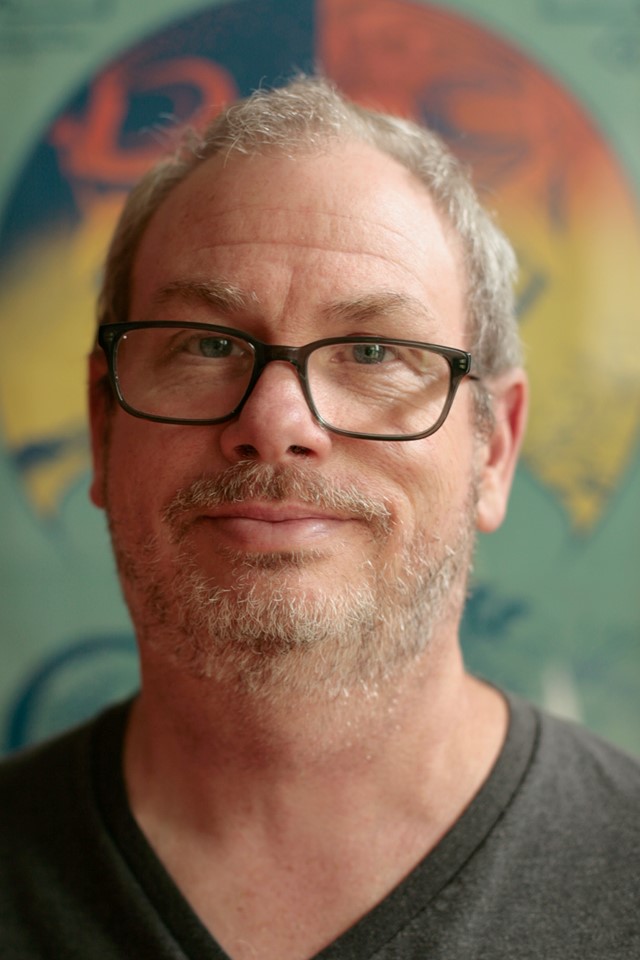
“‘The Feedback Sutras’ is just me pretending that I’m making a record in 1973.”
What kind of record did you want to make? Did you have certain ideas that you wanted to work out for yourself? Would you say there’s a certain concept to it?
This record was a very conscious attempt at using old school techniques and not trying to hide it. Usually it’s an element in what I do that adds flavor, The Feedback Sutras is just me pretending that I’m making a record in 1973. I have a great interest in the techniques of the old masters (Reichel, Göttsching, Pinhas, Schikert, Daevid Allen, ect..) and learning how it was done. I have gone to some of them to get tips on how they managed some of those sounds. It’s really influenced my music and it helps build the knowledge base to make sure these techniques aren’t forgotten down the road. In the new digital age, it’s easy to buy a lot of pedals (and I do love pedals, don’t get me wrong). What is lost sometimes is the flavor and the inventiveness of the old styles. Sometimes these techniques were invented to solve technical issues. If you only had a few pieces of gear and you wanted to do something beyond the typical, you had to think outside of the box and I think that’s what made those players great and I want to be a person that embraces that concept and helps keep that tradition alive.
What kind of equipment did you use?
This record was a Korg MS20, Sony TC630D, Klemt Echolette ,Strymon El Capistan, a custom wah pedal with a low sweep and my Strat.
Would you like to comment on your guitar technique? Give us some insights on developing your technique.
I spend a lot of time on my tone. Getting it just right. I don’t worry about if it was played live or not. I am very much a creature of the studio. Taking the guitar and trying to push it as far out as possible is important in my work as Tarotplane. I use a lot of analog filters every manner of echo device possible generally (both analog and digital). I am a real fan of digital techniques. A lot of the time I amusing gear that would have more in common with a guy in his mid 20s living in Berlin that it does with a 70s sound. This record however is a move towards the old ways.
How about the recording technique?
In general, I record either on Ableton, or an Ipad. I then take that recorded stuff and cut it up in Audacity. This record was made on the Sony reel to reel deck, being output to a zoom handheld. I then took the files and edited them a little bit in a Audacity. Usually I really cut up, edit and collage my work. It could not ever be played live. The Feedback Sutras had very little editing done at all and it was very much how it was played in real time. The A side I improvised over a loop I had made somewhere along the line and the B side was almost as it was played, edited for time. For me this is a real departure. A more honest recording.
How would you compare your latest release with your debut First out on Aguirre Records?
This record has much more in common with First than any other thing I released. My debut album was made with a Tascam handheld. None of it was multitracked. I never learned to use a multitrack when I was growing up. I never recorded anything I did when I was young. On First I just took snippets of things I played and collaged them in Audacity. I didn’t know what I was doing at all. I learned how to use that program by making loops of old prog and psych records. That taught me to feel more comfortable with recording and editing. I then took those loops and ran them through my amp and played over them in real time. So, both tracks were sandwiched together and if there was a glaring mistake it had to be either left in (which is unusual because I am a control freak) or edited to make the whole track shorter. This is why First has a lot of ideas that are short and then I move to another idea. In one review someone said it was like “A mix tape done by a 70’s acid casualty” and I’m thinking, “this guy gets me!” Sometimes things that weren’t played together, were combined and that makes for something that is a little more experimental. As a matter of fact, that record was made to send to local promoters to see if I could get some live gigs. I decided to send it to labels because I thought it turned out pretty decent. The Feedback Sutras was done in much the same way but my playing has improved, and I had ideas I wanted to flesh out that were longer and more singular. Same techniques but using a reel to reel to achieve some interesting effects for the first time.
How about 358 Oblique that was released via Lullabies For Insomniacs?
That record was the first record that I did any multitracking with. Where I played something, recorded it and then played something new over it, using the initial track as a reference. (in other words, recording like a normal person). I used Ableton on that record and it is very polished, very curated, lush and I think a very modern record using elements of the classic 70’s style. My friend Jack Moore appeared on that album and he is a partner on all my stuff in some way. We worked together on 2 tracks for that record where he filtered my guitar through one of his Roland Synths. Jack is my best friend and he is always a partner in everything I do. He is very conscious of sound and he helps me in the studio during the final mix to make sure we got it just right. He has an excellent set of ears which is valuable.
The more curated studio sound is the direction most of my music has been moving towards. I always have admired Brian Eno and I think my work uses that same studio as instrument idea. The new album however goes back to the recording style of First.
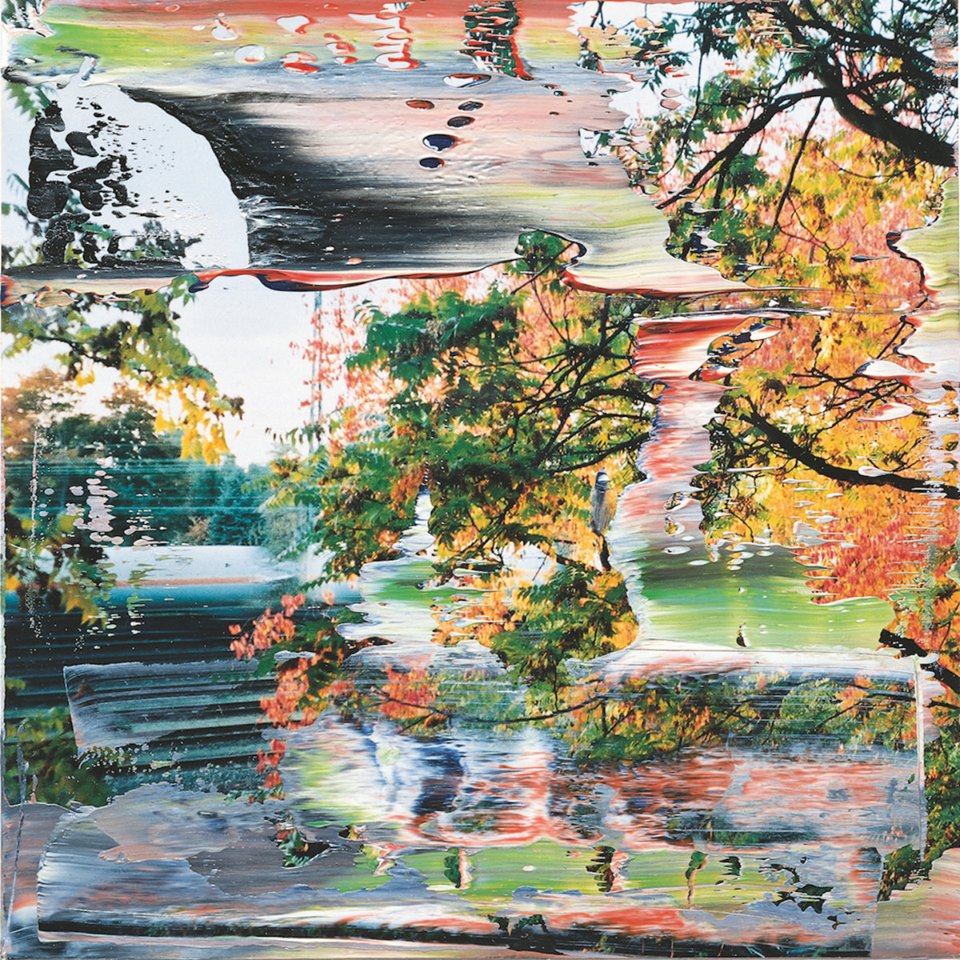
“I think we live in a time where music is classified too strictly by genre”
I also enjoyed your split with Prana Crafter.
Thanks! That was a really fantastic experience. Will (Prana Crafter) is my other best friend and we have known each other for a good while now. I guested on a track he did on his album Enter The Stream. I think we both enjoyed working together and we hatched an idea to do a split LP. He did his thing, I did mine and we sent it to Beyond Beyond is Beyond. We didn’t know if they would go for it. They seemed to like it and it ended up coming out. Will did a side length track whereas I had a bunch of ideas that I edited together. I would play my work in progress to him and Will kept having me add guitar back into my tracks because I kept editing the guitar out. It was a little heavier and more “rock” than I had been doing, while preserving the kind of weird experimental vibe of my previous work. I was into a serious Achim Reichel phase during that record and I think you can hear it. I even enlisted the help of a drummer on one track. If you listen to any of my records, I never make single tracks, I always mix all the tracks together as a seamless whole. Almost like a DJ mix. This way I can have lots of different ideas and styles and it’s my way of including all these different elements together. I never liked the idea of side projects.
I like a lot of different styles. I feel that there is a line that holds all these different ideas together and it’s up to me to find a commonality and bring all of it together into a whole. Ideally that’s always my mission as Tarotplane.
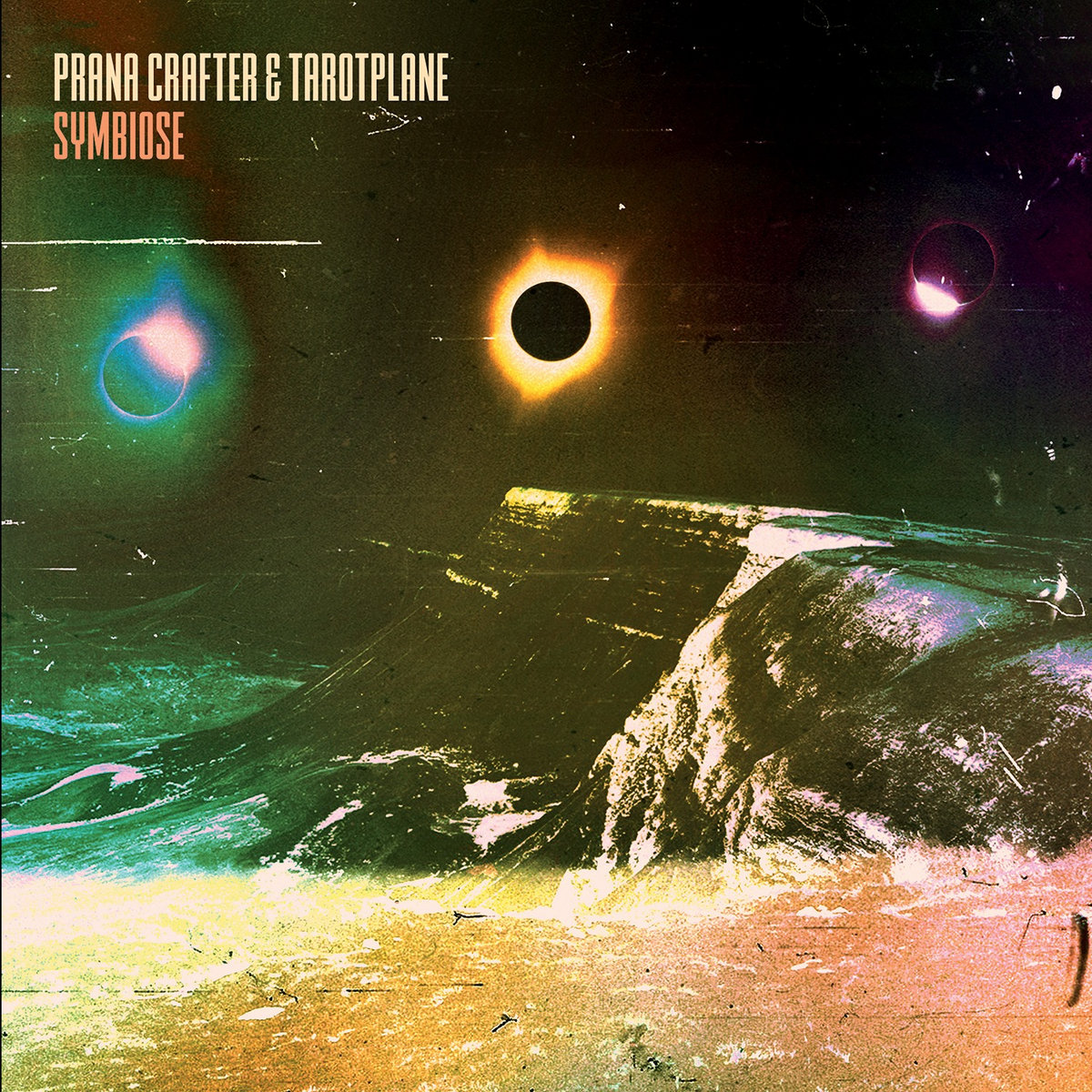
“I think Germany in the 70’s was the place where all of the different strains of underground music took root and bloomed into something new and exciting”
Would you like to talk about your influences? You are often mentioning ‘Krautrock’ records and I would love it if you can make some commentary about in what way they influence you…
I mention Krautrock a lot because it’s the music I think that really fused many different styles and influences together. Of course, as you know, there is no single “Krautrock” and most of these bands were operating independently of each other. My first exposure to the German underground came from my Nurse With Wound obsession in the mid-80s. The famous “NWW List” was a roadmap for so much of the music that shaped my life. So much interesting, far out European music. I think Germany in the 70’s was the place where all of the different strains of underground music took root and bloomed into something new and exciting. The studio techniques of Dieter Dierks and Conny Plank set new standard for producers going forward. I also think the experimental nature of a lot of the Krautrock groups is vital. Of course, I enjoy, Neu!, Can, Kraftwerk, and the usual suspects. That being said, some of the most zoned, far out, psychedelic, avant stuff flies under the radar a little bit. For me, the hallmark records are early Deuter, DOM, Popol Vuh, Sand, Code III, Günter Schickert, Yatha Sidhra, and Brainticket (they are Swiss but whatever…). I think we live in a time where music is classified too strictly by genre and holds to certain sonic conventions and I would like to see a more varied approach to underground music. A lot of people don’t venture beyond the typical “psych” sound that’s become kind of prominent today. So many records with endless heavy Sabbath riffage, where it’s often sounds like everyone made the same exact record over and over. I like Sabbath, and I dig heavy music but I want a bit more diversity in what I listen to. This is why “Krautrock” or at least my vision of it, is a touchstone for what I aspire to make.
What are some future plans?
I just finished a record I have been giving out by email. It’s a record of my playing over loops from older psych and prog records. It’s not strictly kosher because of the source material so that’s why it’s a giveaway. I’m really going all out fuzz guitar on that. People can come to me if they want and I will give it to them. I also started a little side project label so I can release weirder more off the cuff music via Bandcamp. Sometimes worrying what labels will put out your stuff really stifles originality.
I also have a release that I finished a while back coming out of the amazing 12th Isle label out of Glasgow. It’s a record I am extremely proud of and it is the most varied by far. It has elements of post rock outfits like Seefeel, a little minimal techno, and the B side is really very cinematic psych. Very lush, layered and similar to the Lullabies record but with even more soloing and texture.
Since that one has been in the pipeline for a while, I have about 12x new tracks that are looking for a home. It’s moving in the more ambient / soundtrack direction. Because of pressing plant issues, music tends to pile up and isn’t always released in an orderly, linear fashion.
Lastly I mentioned an idea to a British psych label that I admire, that I would love to emulate that loop record but this time having a band supply me with riffs and loops so I could put together something that’s more of a band/rock structure. That is the one thing I have never done and I really want to be involved in that sort of process. Playing with other people to break me out of any typical sound I have gotten use to. I always like to change it up.
Do you often play live?
No, I have only done it 4x times. Never really enjoyed it and I like it increasingly less each time. If I had a band I would do it but logistically it’s not easy to meet people and have rehearsal time. Jack always plays live with me and he likes to do it old school (big cabinets, 100w tube head, reel to reel for backing tracks. If I had a roadie (which would be ridiculous) maybe I would like it more because few things are as therapeutic as playing through a 4×12” as loud as possible). Honestly, I would enjoy it if it was 100% improv with a bass player and a drummer and I just winged it. I think that would possibly be very cool and exciting or completely terrible but at least the possible payoff is great. Also trying to play live and touring seems fairly awful to me because you really need to be hooked up with a manager or touring company otherwise it’s frustrating. I couldn’t even get on the local bill for Kikagaku Moyo/Minami Deutsch and I had just put out a decent selling record on an established psych label. I’m 52, and it’s just too exhausting. My music is not easy to produce live anyhow but with the right setup and people, who knows. I could be persuaded
How are you coping with the current world situation?
Well I am looking at it as an opportunity to re-invent a little bit. Explore what really makes me happy. The idea that we can go back and release music or frankly go back to whatever “normal” is seems unlikely and maybe a little undesirable. Living in the States at the moment is just unreal and it takes a lot to stay positive. I just go out for walks everyday, listen to a lot of music, do a ton of cooking, try to stay gainfully employed, catch up with friends via text. Honestly, I’m living my best life if it wasn’t for the possibility of death and illness around every corner. I am also a hypochondriac, so this has been a little hard to navigate. Every little sneeze, every scratch in my throat flips me out to no end. Was playing Allergies or Covid for a while there.
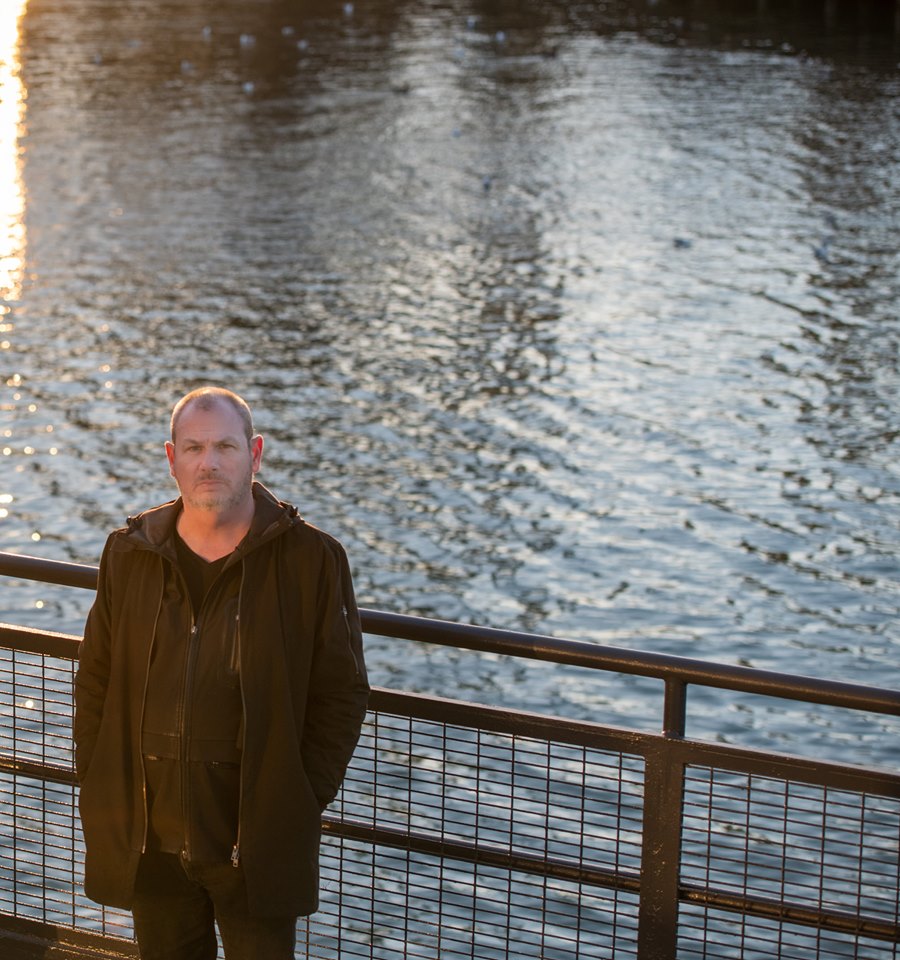
Let’s end this interview with some of your favourite albums. Have you found something new lately you would like to recommend to our readers?
For older classic stuff, I have been lucky to have had the opportunity to do a few mixes for NTS Radio London, and on each one I have tried to do a version of the psych that really appeals to me from the golden era. I am obsessed with a lot of the cosmic Italian music made in the 70’s like Claudio Rocchi and Franco Battiato and I play some of my favorites here.
I also grew up on post punk and industrial and for me bands like Bourbonese Qualk, The Legendary Pink Dots , NWW & Throbbing Gristle are really important. This mix highlights that era and some of the records that mattered a lot to me.
I’m also always finding new or newish stuff. One of my goals is to expand the boundaries of what constitutes psychedelic music. I love all of the stuff by DSR Lines, especially the Spoel 2xLP. Imaginary Lines by Jonathan Fitoussi is a favorite, as is the Huerco S. For Those Of You Who Have Never…. X.Y.R’s El Dorado on 12th Isle is magnificent. The new HTRK Venus In Leo has been on constant rotation as well as the 2 new releases on KIT Records from Romeo Poirier and Electric Capablanca. I have also been listening to a lot of Tuluum Shimmering lately. Lastly I always point out that one of my favorite guitarists that’s still working today and still pushing boundaries into his 60’s is Suso Saiz. He has a lovely new record called Nothing Is Objective on the Music From Memory label that I encourage everyone to check out. He is really someone I want to emulate as I move forward in years. The guitar has endless possibilities and he showcases that.
Thank you. Last word is yours.
Stay positive. It’s hard as hell but it’s worth it.
– Klemen Breznikar
Tarotplane Facebook
Tarotplane Instagram
Tarotplane Twitter
Tarotplane Bandcamp
Tarotplane Soundcloud

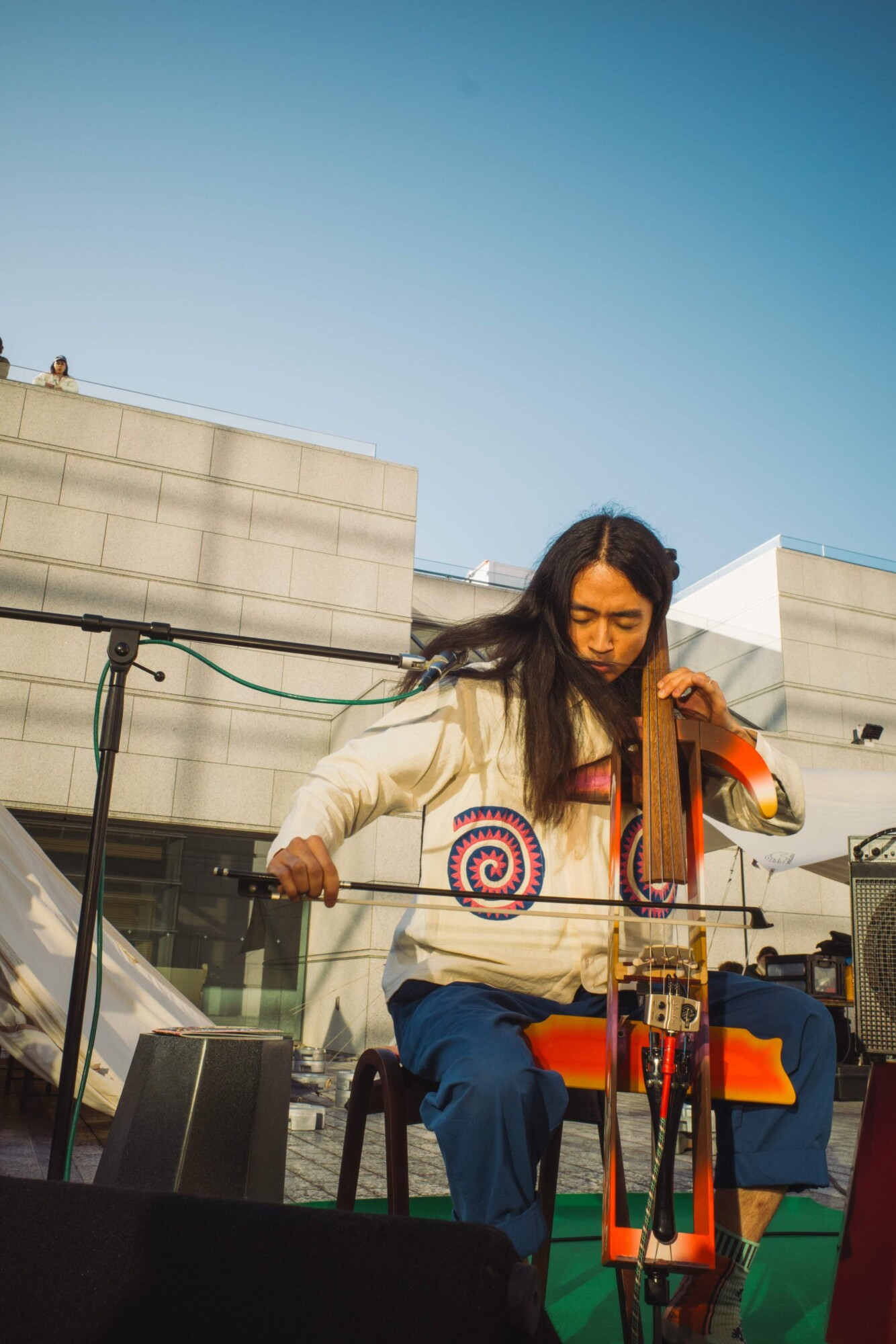
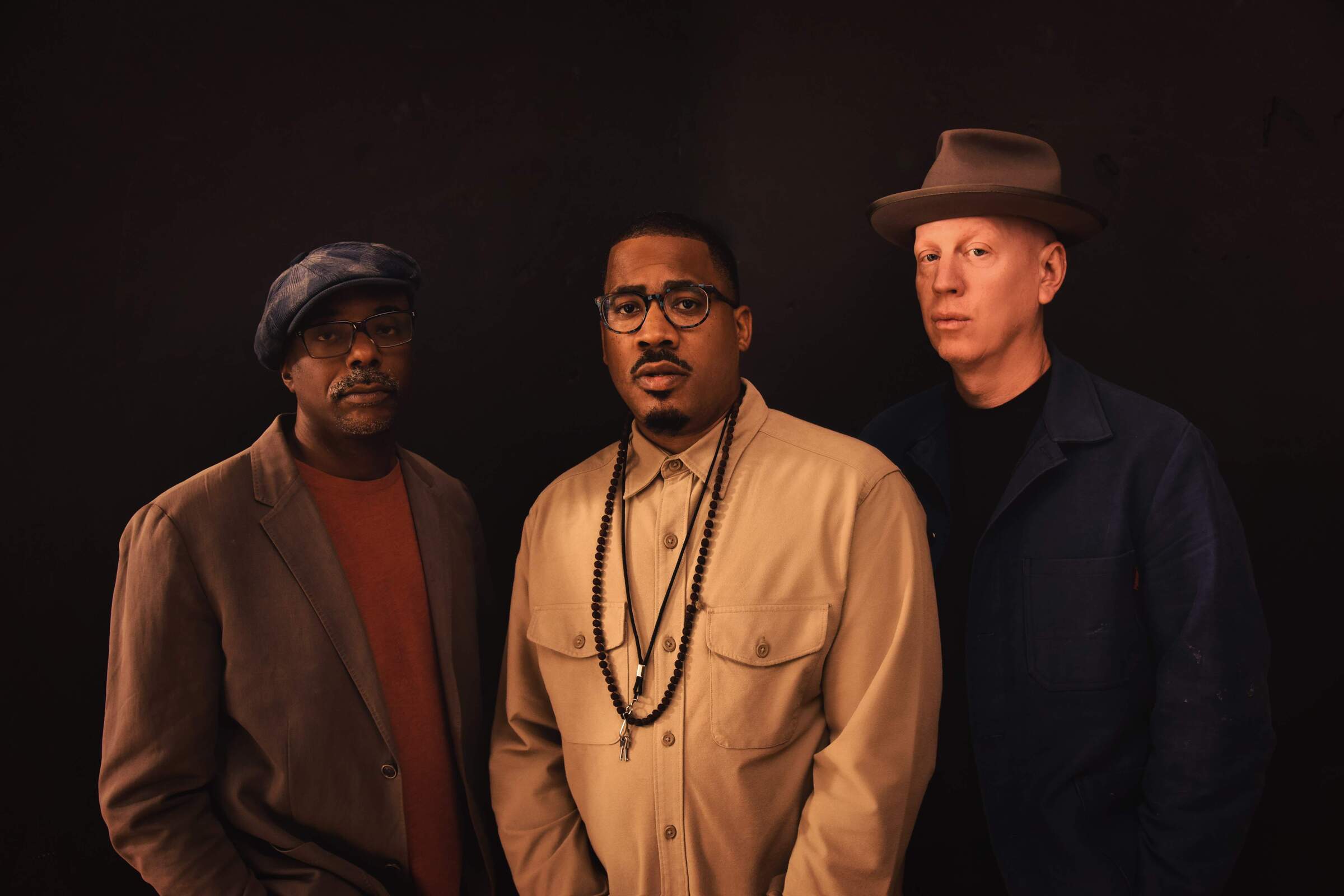
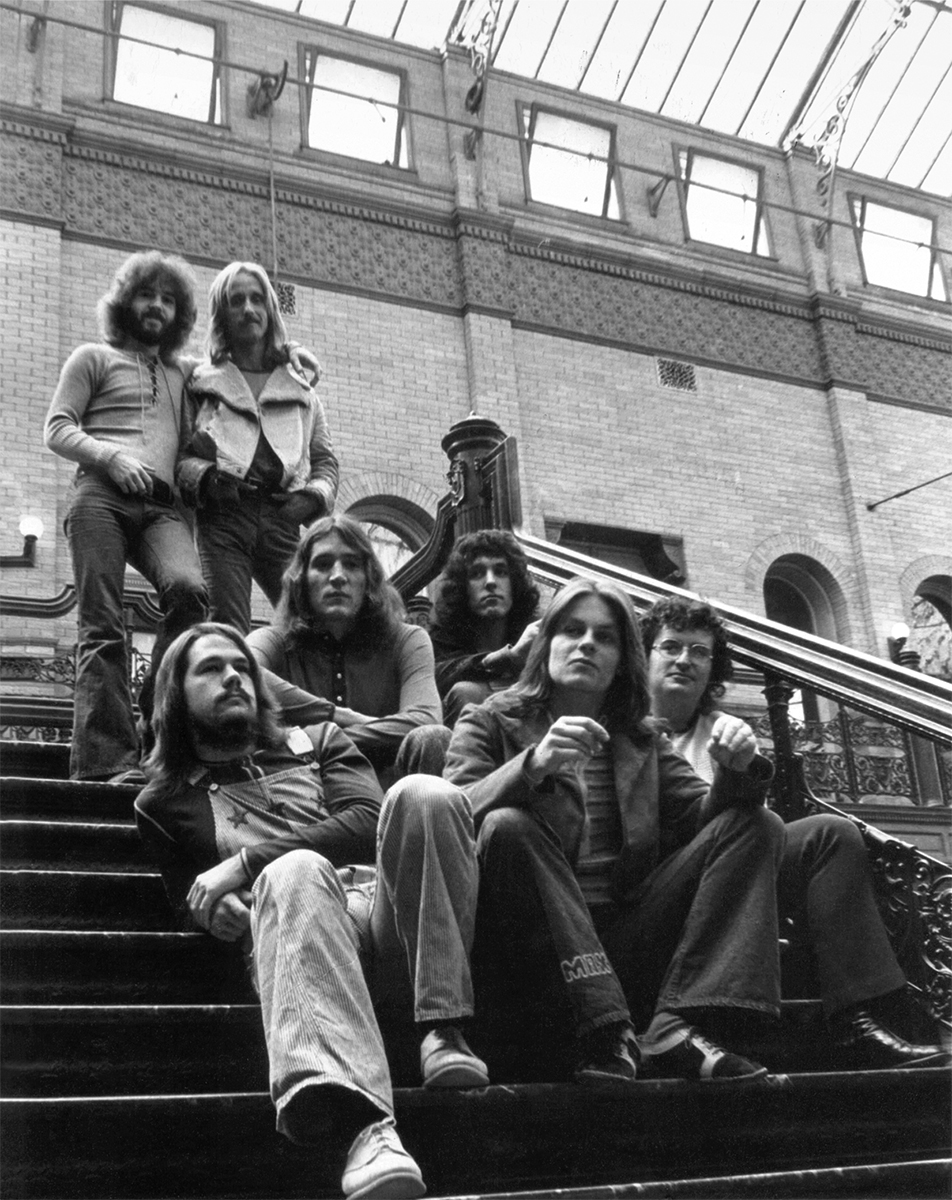
Your story is uncannily similar to mine except you broke through and have made some amazing music. And you’ve given me some incentive to do the same. I’ve started with “The Feedback Sutras” and am now working through the rest of your catalogue. Amazing sounds. Best wishes to you.